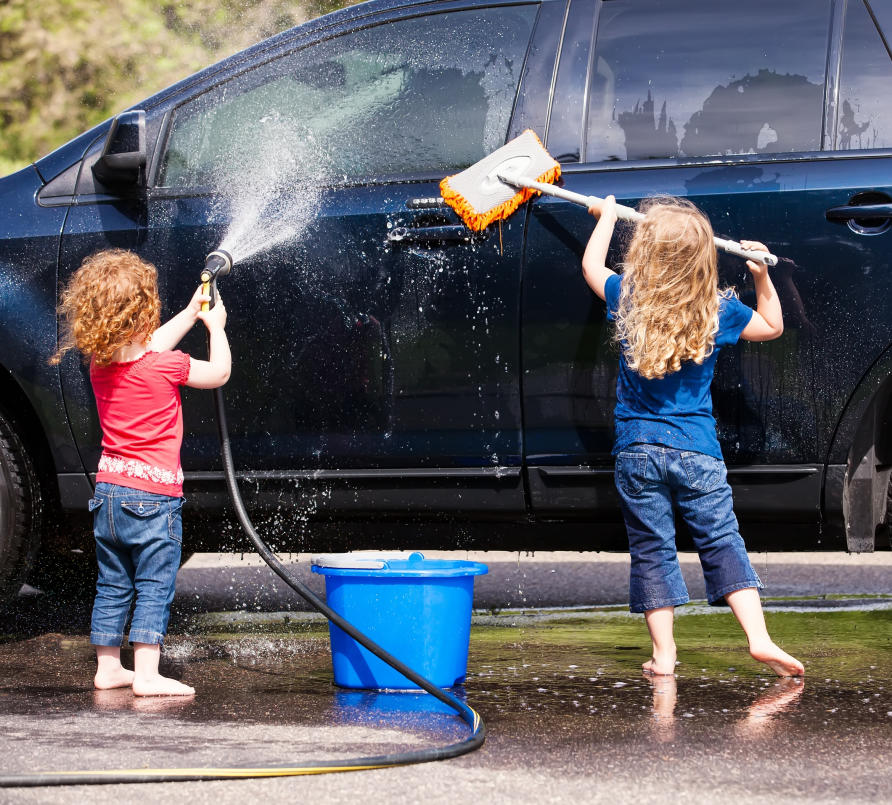
There’s strong evidence that feeling useful builds resilience in children, but how much and what sort of work are modern parents asking kids to do?
Next time your child complains about chores, tell them it’s for their own good.
Giving children meaningful household tasks and the autonomy to complete them may be key to making them more resilient and capable in later life. But are we giving them enough opportunities to feel useful or are we leaving them on the shelf, wrapped in cotton wool?
In what promises to be the biggest online survey of what Australian kids are actually doing to help their families, University of Melbourne researchers have teamed with the ABC’s Behind the News program to ask the children themselves what chores they do and how they feel about helping out.

The survey will be based on an expanded version of the program’s 2015 Happiness Survey that attracted almost 20,000 respondents. The results could lead to new recommendations on how parents, teachers and community services can better engage with children in building personal resilience given evidence that “required helpfulness” can foster self-esteem.
“We want to find out whether having jobs to do around the house and family helps children build their self-esteem and resilience by asking the kids what they do, how they feel about doing jobs, whether the chores are directed or self-driven, and what sort of satisfaction they experience from contributing,” says Associate Professor Lisa Gibbs, Director of the University’s Jack Brockhoff Child Health and Wellbeing Program within the Melbourne School of Population and Global Health.
“By asking the children themselves we can not only find out what is going on in families, but we can also uncover alternative possibilities based on what children say.”
An insight into family resilience
Professor Gibbs, who has received crucial grant support from the Myer Foundation, says the project could also provide insight into family resilience.
“There is emerging evidence of the contribution children can make to preparedness and recovery in areas affected by disaster. Given the opportunity, children can make a meaningful contribution to family and community resilience.”
The idea that it is important to foster a child’s capacity to help others goes back to groundbreaking research published in the 1970s on the impact of the Great Depression on US families that suggested many kids thrive when the going gets tough.
By analysing longitudinal survey data, US sociologist Glen Elder discovered that among families hit by poverty during the Great Depression, people who were infants at the time, and so wholly dependent on adults, struggled throughout their later lives to overcome their circumstances.
But he found that those children who were aged 9-10 when the Depression hit and threw their families into poverty tended to instead do much better later in life. Importantly, they outperformed their peers whose families had been unscathed by the Depression. Professor Elder theorised that these children benefited from increased self-esteem by having to roll up their sleeves and help out.
Changing times
Child welfare expert and honorary professorial fellow in social work at the University of Melbourne, Professor Dorothy Scott, worries that modern Australian children may be missing out on the self-worth that comes from doing meaningful help for others. She notes that in the past the family was an economic unit in which everyone needed to work and contribute to keep food on the table.
But in the wake of the technological and digital revolutions, she argues that families are now units of “passive consumption”. She suggests modern children may be at risk of losing some of the resilience that appears to come from being useful and helping others.
“The historical shift in families is very clear. When the family was an economic unit, children were an important part of it. But now in our consumer society, children have only a minor role to play in terms of contributing to the household,” says Professor Scott, a former Foundation Chair in Child Protection and the Director of the Australian Centre for Child Protection at the University of South Australia.
“Positive psychology talks of resilience being related to factors like being part of something larger than yourself as an antidote to the passiveness that comes from a consumer society. The hypothesis is that by promoting required helpfulness and contributing to the wellbeing of others we might be able to help children build their own identity.
“That is why we need some contemporary research like this to ask children what they are doing in their daily lives. At the moment we don’t know how contemporary families work in this respect.”
Professor Scott says it would be interesting, for example, to know whether children are commonly receiving pocket money for doing jobs around the house and whether such pocket money is motivating them, or whether they are deriving satisfaction from simply helping.
The question now is what kids think of helping out. Their answers may similarly surprise us.
